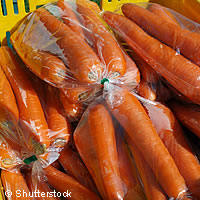EU quest for food security begins with research
The Scientific Advisory Board for the new EU Joint Programming Initiative (JPI) on Agriculture, Food Security and Climate Change held its maiden meeting in Paris, France on 10 June where it launched a joint research effort targeting a safe and sustainable food supply in Europe. The European Commission, which was instrumental in driving forward the JPI, has pledged some EUR 2 million to help bring this goal to fruition. Under the JPI, 20 European countries will work together to define, develop and implement common strategic research agendas in areas that weigh heavily on the minds of Europeans, specifically issues affecting their well-being and prosperity. The JPI is focusing on strengthening researcher collaboration, bolstering the effectiveness of national funding that would top the EUR 1 billion mark each year, coordinating potential work so as to maximise value for money and avoid duplication, and sharing existing research results. The Initiative is being led by the National Institute for Agricultural Research (INRA) in France and the Biotechnology and Biological Sciences Research Council (BBSRC) in the UK. 'Food security is a stark matter of life and death and without it there is no other kind of security,' said Máire Geoghegan-Quinn, the European Commissioner for Research, Innovation and Science. 'Quite rightly, billions of euros are being invested by public and private sector in tackling this huge challenge. But no one Member State can succeed on its own. We can only get full value for public research funds by working together,' she underlined. 'This Joint Programming Initiative will help replace fragmentation and duplication with coherence and coordination and will therefore be a major contribution to the European 2020 Strategy.' Less than 15% of public civil research is currently coordinated at the European level and the EU budget covers just 5% of public research funding. Rising to the challenge to make things right, the European Commission is determined to play a crucial role in coordinating the remaining 95%. Ultimately, the objective of the Initiative, which is to achieve a shared vision, not only focuses on a stable, safe and sustainable food supply, but it also centres on curbing the impact climate change has on agriculture. EU data show that the world population will reach 9 billion within the next 40 years. This increase will affect food demand, which is expected to jump by 50% by 2030. At the same time, Europeans will have to deal with water shortages, higher temperatures and unpredictable climate conditions. Experts say agriculture emissions are responsible for 14% of the world's greenhouse gas emissions. Working together with the French and British members for the Initiative's success are key actors from Austria, the Czech Republic, Cyprus, Denmark, Estonia, Finland, Germany, Hungary, Ireland, Israel, Italy, the Netherlands, Norway, Romania, Slovakia, Spain, Sweden and Turkey. Key contributions at the meeting of the JPI Scientific Advisory Board for the EU Joint Programming Initiative (JPI) on Agriculture, Food Security and Climate Change came from the 12 leading scientists who attended including 2 from the US. Officials say the JPI will complement work currently being carried out at the EU level. Since 2005, the European Commission has allocated around EUR 300 million for joint projects in areas covered by the JPI via its Framework Programme for Research. In addition, 12 ERA-NET (European Research Area Network) schemes are already pooling national research efforts across Europe targeting the same areas. Europeans are not the only ones facing these challenges; people all over the world must deal with climate change effects and rising food demand. This is where Joint Programming enters the picture...
Countries
Austria, Cyprus, Czechia, Germany, Denmark, Estonia, Spain, Finland, France, Hungary, Ireland, Israel, Italy, Netherlands, Norway, Romania, Sweden, Slovakia, Türkiye, United Kingdom



